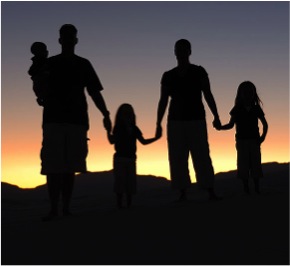-
Advocacy Theme
-
Tags
- Abortion
- Adoption
- Caregiving
- CEDAW
- Disability
- Domestic Violence
- Domestic Workers
- Harassment
- Healthcare
- Housing
- International/Regional Work
- Maintenance
- Media
- Migrant Spouses
- Migrant Workers
- Muslim Law
- National budget
- Parental Leave
- Parenthood
- Polygamy
- Population
- Race and religion
- Sexual Violence
- Sexuality Education
- Single Parents
- Social Support
- Sterilisation
- Women's Charter
Singapore can do more to support family life
May 12th, 2014 | Employment and Labour Rights, Family and Divorce, Letters and op-eds, News
By Jolene Tan, Programmes and Communications Senior Manager, Association of Women for Action and Research
Our society should rightly be pleased with its high ranking in the Save the Children report on motherhood (“Singapore best place in Asia to be a mum”; last Wednesday).
Singapore’s low rates of maternal and child mortality, high gross national income per capita and widespread availability of formal education are significant achievements.
However, it is useful to have a sense of perspective about how the report is compiled – and therefore what it misses – so that we do not rest on our laurels, but continue to improve our policies and practices.
The sub-title of the report is “Saving mothers and children in humanitarian crises”. Accordingly, it focuses on discussions of war and other violent conflicts, as well as natural disasters.
As a stable, wealthy country with well-developed infrastructure, facing little threat of natural disaster, Singapore naturally does well on the broad and fundamental measures on which the ranking is based.
 However, the report does not take into account the specific challenges that parents often face in the advanced industrialised economies that are more comparable to Singapore than countries which experience difficulty with humanitarian emergencies.
However, the report does not take into account the specific challenges that parents often face in the advanced industrialised economies that are more comparable to Singapore than countries which experience difficulty with humanitarian emergencies.
For example, it does not address the parent-friendliness of workplaces. Ireland and Britain are ranked lower than Singapore, despite their much more generous legislated parental leave entitlements, available regardless of marital status or nationality.
A recent survey showed that 71 per cent of human resource managers in large firms thought work-life balance held women back in the workplace in Singapore. None attributed to women a lack of ambition.
The report also gives no consideration to the threat of employment termination for pregnancy, parenthood or taking parental leave.
A mother who returns from maternity leave to find her position terminated has little recourse in Singapore. By contrast, in Britain and Ireland, she could invoke legal protection, such as unfair dismissal claims.
Likewise, the report overlooks access to public housing – a particular difficulty for unmarried mothers in Singapore.
Nor is attention paid to the unequal sharing of parental caregiving, which greatly affects mothers’ quality of life.
In a 2012 Association of Women for Action and Research survey, 58 per cent of male respondents aged 18 to 29 felt that women should have primary responsibility for chores and childcare, compared with 38 per cent of female respondents.
Singapore’s level of development is a cause for celebration but not for complacency. We still have something to learn from other countries in supporting access to economic well-being and family life.
This letter was first published in the Straits Times on 12 May 2014.



